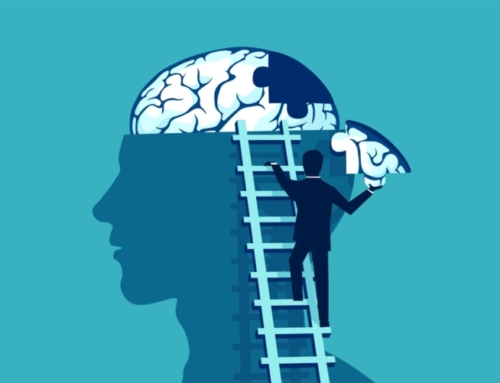I start with a quick review of vicious circles because physician burnout has elements of this pernicious phenomenon.
Many outcomes occur from the effects of positive feedback loops, that is, the emergence of some variable leads to changes in the system that lead to further increases in the value of that variable. Positive in this use does not connote beneficial or good but rather means that small changes are amplified over time to become big changes. (Negative feedback loops lead to dampening of changes.)
Positive feedback loops can lead to either beneficial or detrimental changes – or neutral changes for that matter. Feedback loops that lead to beneficial changes are called virtuous circles and those leading to detrimental changes are called vicious circles. An example of both is captured by the single aphorism “The rich get richer and the poor get poorer.”
Burnout is a phenomenon that often follows the trajectory of a vicious circle: the slightly burned-out doctor often becomes more severely burned out. Let’s consider why this is and, more importantly, what to do about it.
Here’s a review of the cardinal signs of burnout:
- Emotional exhaustion: feelings of being overextended, overwhelmed, and emotionally drained
- Depersonalization: impersonal responding to patients and co-workers, and cynicism
- Personal accomplishment: feelings of lacking competence and successful achievement working with patients
Now read these symptoms again and consider how they can interact, leading to mutual worsening as well as to development of additional symptoms. All these detrimental effects often trigger maladaptive coping strategies, which worsen the situation further still, disrupting our allostatic equilibrium.
- When you react impersonally to patients, they likely will become less trusting of you, question you more, become less adherent to your treatment recommendations, and are more likely to miss scheduled appointments. These patient behaviors make you more likely to view patients cynically and thus the wheel of cynicism turns another half-rotation.
- When you feel emotionally exhausted, overwhelmed, and drained you are more likely to make medical mistakes. They may be small and inconsequential or they may be damaging to a patient’s health. But even mistakes without negative consequences for the patient undermine your confidence in your work and your sense of competence and professional achievement.
- As these factors pick up steam, you are more likely to sleep poorly, eat unhealthily, and perhaps withdraw from social and family-related activities. After all, you are getting more and more exhausted. As you withdraw from non-work activities, you have fewer and fewer opportunities for rewarding and rejuvenating activities and interactions, leading to further stress and, perhaps eventually, frank depression.
- As you feel under constant physical tension and mental stress, you may start (or increase) engaging in additional maladaptive coping strategies, such as alcohol and other drug use, calling in sick, and putting off completing paperwork that then piles up unsustainably. These strategies are examples of escape avoidance, an extremely reinforcing type of coping strategy that is soothing in the short term and disruptive in the longer term. It’s the virtually immediate decrease in tension that makes escape-avoidance so darn reinforcing, never mind the longer-term consequences.
Wow! Sorry, to bum you out with all this. But this is the reality for far too many physicians. You may recognize some of these symptoms and coping strategies that you yourself have started using and may feel you’re on the path to burnout.
What to do?
Today I discuss an adaptive coping strategy. It is a more nuanced strategy that works best at milder stages of burnout or as an addition to other strategies at higher levels of burnout. This strategy relies on consciously shifting your mindset regarding your work with patients and even perhaps with the unpleasant paperwork and administrative tasks you face.
The way I frame work tasks for myself, both tasks that I enjoy and those that I don’t, is to think I’m being “paid” twice for doing them. First, I get paid to do the work that I do, whether direct patient work or administrative work. But this work by itself may not be sufficiently (or at all) satisfying. So, I consider how I can get “paid” a second time. I do this by shifting my mindset to view each challenge, whether a patient- or administrative-related one, as an opportunity to achieve mastery in the different aspects of my work. Then I can feel I’m being paid once for the work I do and a second time by increasing my mastery, both my knowledge and my skill. And the tasks that I master – well, what I learn stays with me forever, and it benefits me and every future patient I treat and resident I teach. Here are examples of what I mean:
- I see a patient with borderline personality disorder who challenges me and my efforts in rude ways. I’m on the dark side of her emotional splitting. Normally, this type of patient behavior is very stressful and irritating. In these situations I must exert a lot of effort to think about how to act – and then act – therapeutically toward this type of challenging patient. And still, I often get upset anyway. But I can change my mindset and by doing so gain both a sense of emotional distancing from my roiling irritation and a sense of increased mastery. I do this by focusing on understanding the patient’s behavior as a manifestation of her underlying emotional regulation disturbance. As I’m interacting with her, I’m asking myself, “Why did she attack me, just at this particular moment? What in our interaction triggered her? Why did she attack me in just the way she did? What insight does this give me into her inner emotional life? And what does it say about me? Did her attack strike close to home? What can I learn about my own vulnerabilities and professional shortcomings?” Then, I can try out different therapeutic approaches and take on different interpersonal personae as I learn to better cope with this type of behavior. I can go home and read any of the many excellent texts about this condition and how to treat it. (A great place to start is Linehan’s “Cognitive Behavioral Treatment for Borderline Personality Disorder.”) I have to say that patients with BPD have been the most challenging AND the most edifying to me. I have learned more from them than from anyone else. And I feel grateful for that.
- I see a patient who is chronically non-adherent with the medications I prescribe him for hypertension. I’ve gone over and over with the patient about the risks of his behavior many times before. I ask myself, “Why does he persist in this behavior? Is it cognitive impairment? Is he flirting with disaster because of some unknown emotional reason, like he doesn’t care if he lives or dies? Have I ever asked him why he remains poorly compliant? Is he afraid of the med? Is he simply getting a perverse sense of satisfaction in pissing me off for some reason? Is this his way of engaging with me because he wants interaction and doesn’t know a better way of achieving it?” Poor adherence is a common problem in all specialties of medicine. I tell myself, “Maybe I can use this patient to learn more about this common phenomenon that leads to so many bad outcomes.”
- My medical center implements an EHR that I simply hate to use. After six months of frustration, procrastination in writing timely notes, and sheer anger, I decide I’m either leaving my job or mastering the beast. After evaluating my options I decide to stay and take an advanced course in using the EHR. Afterward, I now know well how to use it but find its shortcomings maddening. I collaborate with technically-minded colleagues to develop an EHR of much greater usability and sophistication, and we start our own company. (This scenario is based on the experience of a physician friend of mine, who did just this.)
When a doctor notices the heralding symptoms of burnout (such as dread for the workweek to start, cynical attitude toward patients, short temperedness, dropping off of hobbies and social activities, and worse sleep) it should be a trigger for change. I’ve mentioned before, maintaining control and a sense that you have options is extremely important in avoiding burnout. Also, maintaining a healthy and balanced lifestyle, one that allows focusing on the other important aspects of a good life, is crucial. Today, I add the strategy of consciously setting out to recapture a sense of adventure and of opportunities to learn from challenging patients and other job aspects. This “get paid twice” approach can help maintain a long and happy career. And you never know where it unexpectedly might lead. (After all, the two-time failure of my oral boards got me motivated enough to master the necessary skills that eventually led me to start my board prep courses.)
Until next time,
Dr. Jack
LanguageBrief
“To achieve great things, two things are needed: a plan and not quite enough time.” – Leonard Bernstein
“It’s important not to lie to yourself. If you lie to yourself you end up with burnout.” – Patrick Pichette
“If you really want to escape the things that harass you, what you need is not to be in a different place but to be a different person.” – Seneca







Leave A Comment